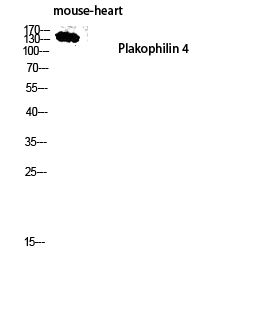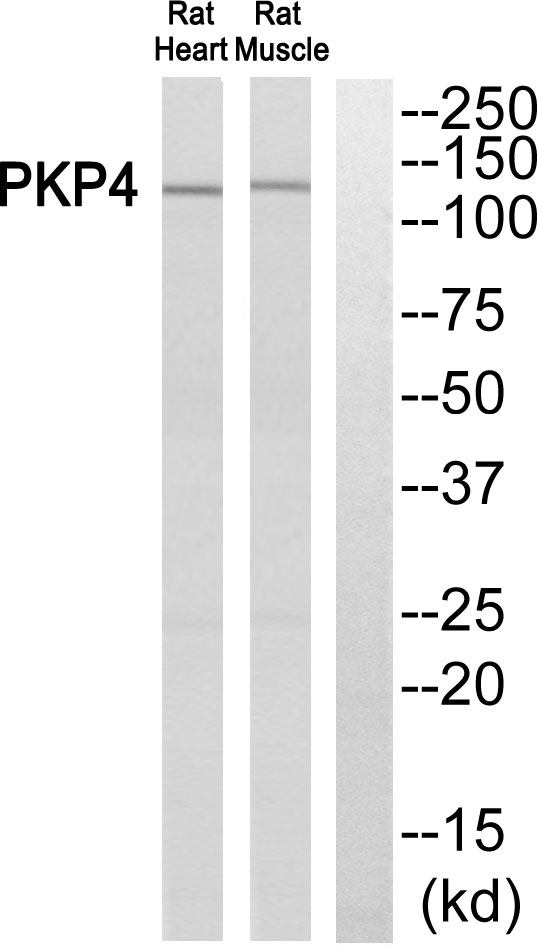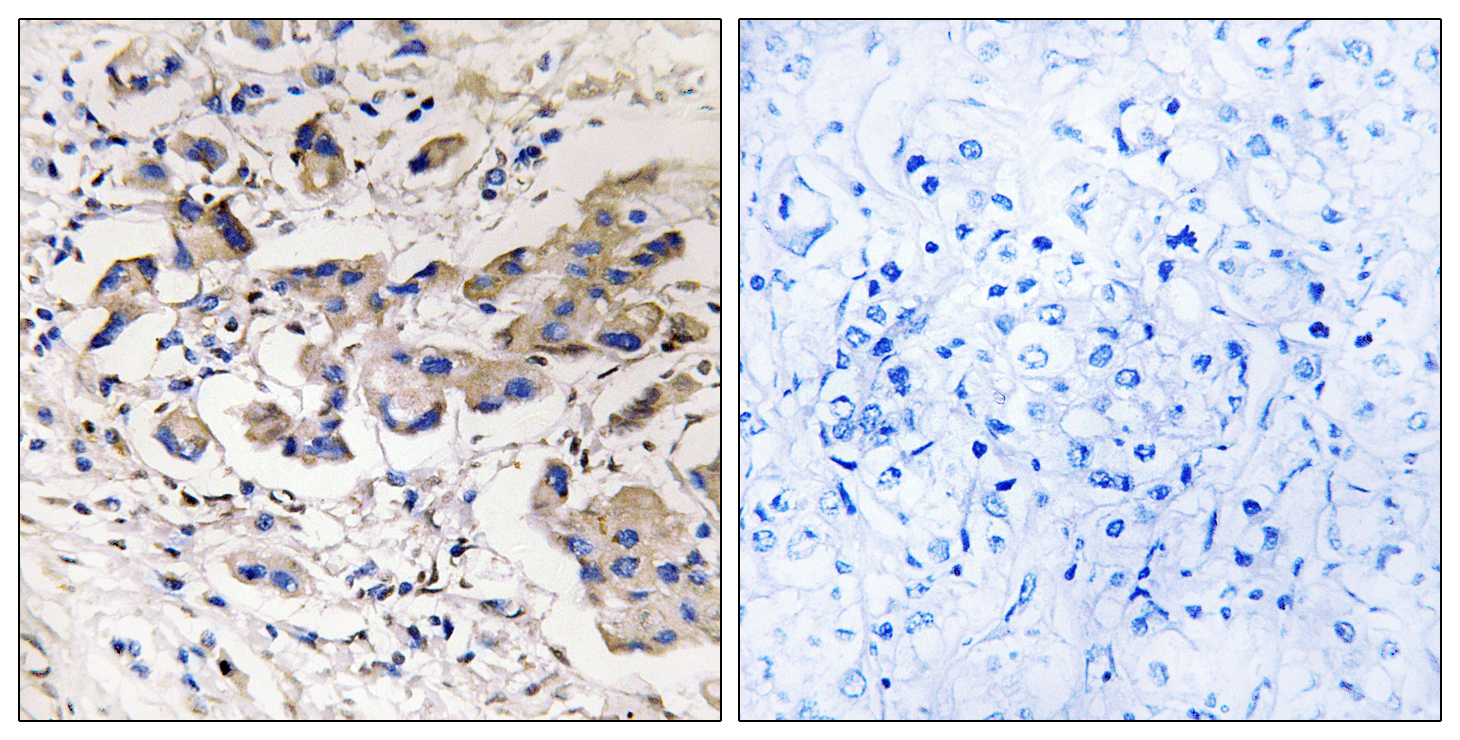Plakophilin 4 Polyclonal Antibody
- Catalog No.:YT3785
- Applications:WB;IHC;IF;ELISA
- Reactivity:Human;Mouse
- Target:
- Plakophilin 4
- Gene Name:
- PKP4
- Protein Name:
- Plakophilin-4
- Human Gene Id:
- 604276
- Human Swiss Prot No:
- Q99569
- Mouse Gene Id:
- 227937
- Mouse Swiss Prot No:
- Q68FH0
- Immunogen:
- The antiserum was produced against synthesized peptide derived from human PKP4. AA range:185-234
- Specificity:
- Plakophilin 4 Polyclonal Antibody detects endogenous levels of Plakophilin 4 protein.
- Formulation:
- Liquid in PBS containing 50% glycerol, 0.5% BSA and 0.02% sodium azide.
- Source:
- Polyclonal, Rabbit,IgG
- Dilution:
- WB 1:500 - 1:2000. IHC 1:100 - 1:300. ELISA: 1:5000.. IF 1:50-200
- Purification:
- The antibody was affinity-purified from rabbit antiserum by affinity-chromatography using epitope-specific immunogen.
- Concentration:
- 1 mg/ml
- Storage Stability:
- -15°C to -25°C/1 year(Do not lower than -25°C)
- Other Name:
- PKP4;Plakophilin-4;p0071
- Observed Band(KD):
- 130kD
- Background:
- Armadillo-like proteins are characterized by a series of armadillo repeats, first defined in the Drosophila 'armadillo' gene product, that are typically 42 to 45 amino acids in length. These proteins can be divided into subfamilies based on their number of repeats, their overall sequence similarity, and the dispersion of the repeats throughout their sequences. Members of the p120(ctn)/plakophilin subfamily of Armadillo-like proteins, including CTNND1, CTNND2, PKP1, PKP2, PKP4, and ARVCF. PKP4 may be a component of desmosomal plaque and other adhesion plaques and is thought to be involved in regulating junctional plaque organization and cadherin function. Multiple transcript variants encoding different isoforms have been found for this gene. [provided by RefSeq, Feb 2015],
- Function:
- function:May play a role in junctional plaques.,PTM:Phosphorylated upon DNA damage, probably by ATM or ATR.,similarity:Belongs to the beta-catenin family.,similarity:Contains 9 ARM repeats.,subcellular location:Colocalized with desmoplakin at desmosomal junctional plaques in cultured epithelial cells.,subunit:Interacts with PDZD2.,
- Subcellular Location:
- Cell junction, desmosome . Cytoplasm, cytoskeleton, spindle . Midbody . Cell membrane ; Peripheral membrane protein . Associated with the pericentrosomal region in interphase and with spindle poles during mitosis. In anaphase, during chromosome segregation, is recruited to the central microtubule bundle, focussed at the spindle midzone and ultimately localizes to the midbody at cytokinesis. Constituent of the midbody cytoskeletal matrix. Colocalized with desmoplakin at desmosomal junctional plaques in cultured epithelial cells.
- Expression:
- Expressed in salivary glands (at protein level) (PubMed:30479852). Expressed in arrector pili muscle (at protein level) (PubMed:29034528).
- June 19-2018
- WESTERN IMMUNOBLOTTING PROTOCOL
- June 19-2018
- IMMUNOHISTOCHEMISTRY-PARAFFIN PROTOCOL
- June 19-2018
- IMMUNOFLUORESCENCE PROTOCOL
- September 08-2020
- FLOW-CYTOMEYRT-PROTOCOL
- May 20-2022
- Cell-Based ELISA│解您多样本WB检测之困扰
- July 13-2018
- CELL-BASED-ELISA-PROTOCOL-FOR-ACETYL-PROTEIN
- July 13-2018
- CELL-BASED-ELISA-PROTOCOL-FOR-PHOSPHO-PROTEIN
- July 13-2018
- Antibody-FAQs
- Products Images

- Western blot analysis of mouse-heart lysis using Plakophilin 4 antibody. Antibody was diluted at 1:2000

- Western blot analysis of PKP4 Antibody. The lane on the right is blocked with the PKP4 peptide.

- Immunohistochemistryt analysis of paraffin-embedded human breast carcinoma, using PKP4 Antibody. The lane on the right is blocked with the PKP4 peptide.



